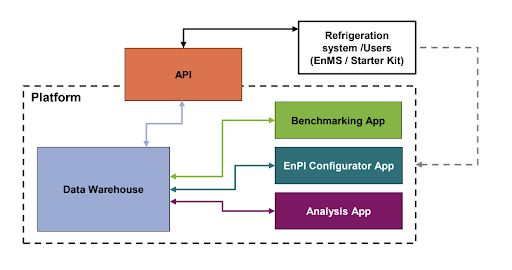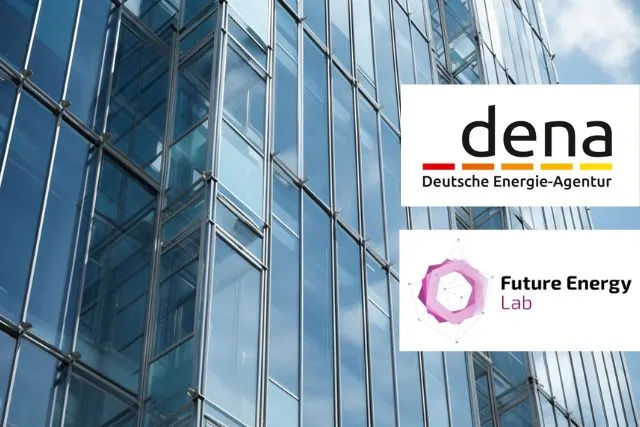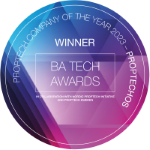In December 2022, after a successful experts meeting on the Analysis and Benchmarking Platform for Refrigeration, Air Conditioning, and Heat Pump Systems, the development of the Energy Performance Benchmark platform started.
The platform offers a cost-effective and flexible solution that will increase awareness among equipment owners and promote the experience and competence built up in the service sector and among energy consultants. A standardized approach for analysis and visualization of information that also includes actionable information will drive awareness and capacity building as costs are drastically reduced for data collection and analysis to get actionable information for energy optimization and fault avoidance.
Currently, there are 16 SMEs participating in the analysis and benchmarking of their sites. The platform has large scalability capabilities and can be extended to a wide magnitude of participants in order to spread the usefulness and energy savings effects.
The focus is on refrigeration air conditioning and heat pumps with water/air-cooled heat exchangers + refrigerant CO2. This selection is enabled by various applicable cross-sectional technologies (compressors, etc.) in SMEs and large-scale applications.
In September 2023, the Second meeting of the Advisory board for the project happened with the introduction of the beta version of the Energy Performance Benchmark platform.
Following the project’s objective to create an integrated solution for refrigeration systems in SMEs, the expected result is benchmarking for operational systems that allow predictive maintenance and continuous monitoring.
The Energy Performance Benchmarking Platform was established in Germany based on the Microsoft Azure platform. Communication between the platform and the server is set and several solutions for data transfer are established.

The platform is developed for the usage of 6 personas, among which are the property owners’s facility staff, energy experts, heat pump technicians/engineers, and scientists for further analysis.
The platform uses the Normalised Energy Signature (NES) that visualizes the average energy consumption per hour vs. outdoor temperature. The use of NES allows to:
- Compare sites regardless of having locations with different climate and regardless of size;
- Compare the same site over time;
- The energy signature can be used to calculate the energy;
- Consumption for a “normal year” or “reference year”.
Using the System Efficiency Index (SEI) provides insights into the refrigeration cycle, compressor, condenser, and evaporator for each sub-system.
A crucial part of the platform is the Energy Performance (EnPI) Configurator application that aims at onboarding/validation of the site set-up and adding additional info on the site for orientation. The motivation for configuration is categorization for the pilot sites based on key system types e.g. water-cooled chillers and air-cooled chillers. While benchmarking follows the same principles for all systems, some of the EnPIs become significantly more relevant with a more specific selection of the data.
We look forward to creating the national benchmark for Germany and extending it with more participants further enhancing the usefulness and spreading insights into energy-conserving measures.

Dr. Erik Wallin
Chief Ecosystem Officer, and founder of ProptechOS and RealEstateCore is recognized as a leader in Building Operating Systems (BOS) and making the buildings of the world smarter. He holds an MSc and a Ph.D. in Media and Computer Science from KTH Royal Institute of Technology.
Read his full bio and information here.

